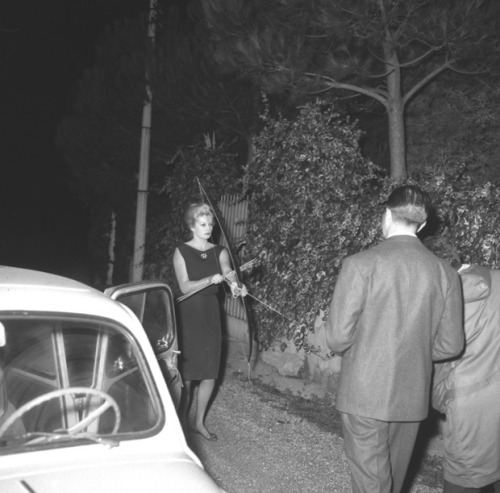 Original band member Stuart Sutcliffe came up with THE BEETLES, as a play on Buddy Holly
Original band member Stuart Sutcliffe came up with THE BEETLES, as a play on Buddy HollyThet actually called themselves The Beatals for the first few months in 1960 and had tried out other names including "Johnny and the Moondogs", "Long John and The Beetles.
They were using the name THE QUARRYMEN
Some sources say that John Lennon listed the influence of the film The Wild One,
I was with John and Stuart at the Gambier Terrace flat when they discussed a new name. Indeed, Stuart suggested a name like Buddy Holly's group and they started coming out with the name of insects and liked 'beetles.' This was the name Buddy Holly originally thought of himself before decided on Crickets. None of the Beatles knew of 'The Wild One' and none had ever seen it because it was banned in Britain for 14 years and was first shown in 1968.
The rumour came about 'The Wild One' in the mid-Sixties when Derek Taylor saw it in America and asked George Harrison did the reference to a motorcycle gang called the beetles influence the name. George wasn't around when the name was conceived and didn't know, so he assumed Derek was right, unaware that the film had never been shown in the UK when the name was conceived in 1960.
John Lennon never at any time mentioned 'The Wild One' in association with their name.
Lennon is generally credited with combining Beetles and Beat to come up with THE BEATLES spelling.
Search Amazon.com for The Beatles
Search Amazon.com Music for The Beatles
Search Amazon.com Apparel for The Beatles



